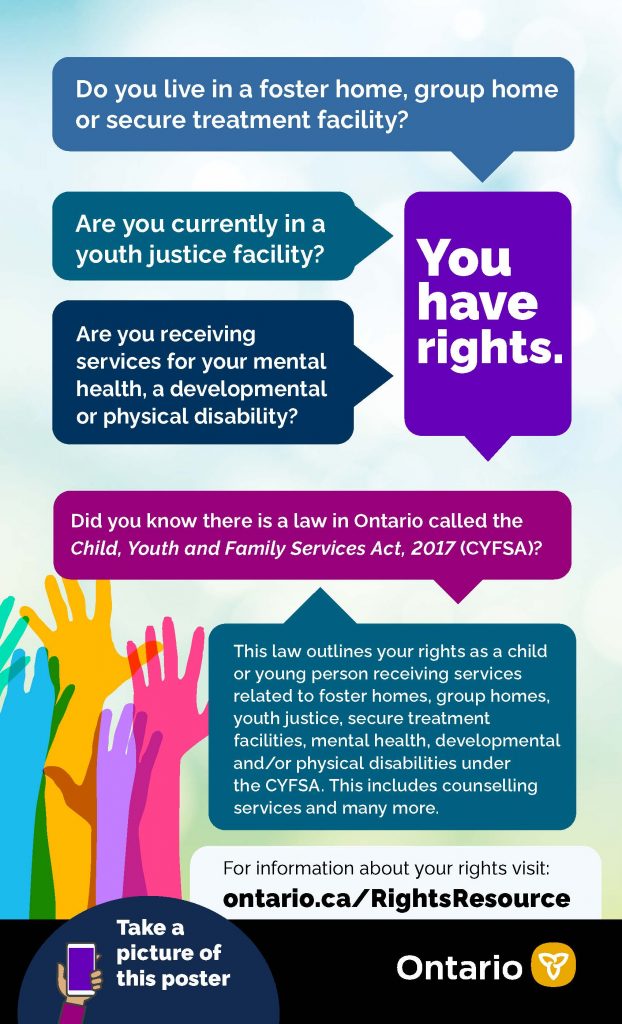About this guide
This guide is intended to provide a general overview of child rights in the child welfare context, with a specific focus on the United Nations Convention on the Rights of the Child (CRC).
If you are looking for resources specific to the right to be heard, see the guide here.
Context
One of the aims of Ontario's new legislation, the Child, Youth and Family Services Act, is for child welfare practice and service delivery to be consistent with and build upon the principles expressed in the United Nations Convention on the Rights of the Child (CRC). This entails putting children and youth at the centre of decision-making and outlining a clear set of rights that apply to all children and youth receiving services.
The CRC is a treaty that recognizes specific rights for children (under age 18). It was ratified by Canada on December 13 1991. The guiding principles of the CRC are non-discrimination; devotion to the best interests of the child; the right to life, survival and development; and the right to participate and be heard.
Key documents
Beyond the Convention on the Rights of the Child (CRC)
In addition to the CRC, Canada has also supported, adopted, and ratified other international agreements that recognize the unique status and rights of specific groups of peoples. This includes the Convention on the Rights of Persons with Disabilities and the Convention Relating to the Status of Refugees. Most recently, in 2016, Canada adopted the United Nations Declaration on the Rights of Indigenous Peoples (UNDRIP) after many years of objector status.
While the CRC has been criticized by some for being primarily based on Western Euro-centric values and ideals of childhood, some Indigenous communities and organizations in Canada have expressed support for the CRC, while also pursuing their own frameworks and/or using additional human rights instruments, such as UNDRIP, that embed child rights within the larger collective rights of Indigenous communities. Canada and its systems and institutions – including child welfare – have also been criticized for failing to implement the CRC and respect the rights of all children. As noted by the Ontario Human Rights Commission in its report on the overrepresentation of Indigenous and African Canadian children in Ontario child welfare "Indigenous, Black and other racialized children may not equally enjoy the rights provided for under international human rights standards."
Within child welfare, rights have typically been articulated in terms of the rights that children have in foster care. Some jurisdictions (especially in the U.S.) have even enacted their own bill of rights for foster children. However, these rights have rarely been as comprehensive as the rights laid out in the CRC.
The new Child, Youth and Family Services Act (CYFSA) references both the CRC and UNDRIP in its preamble, as well as specifically addresses the rights of children receiving services and the rights of children in care in Part II.
Child rights and child welfare
Indigenous child rights
Resources for child welfare professionals
Resources for agencies and organizations
Resources for children and youth
